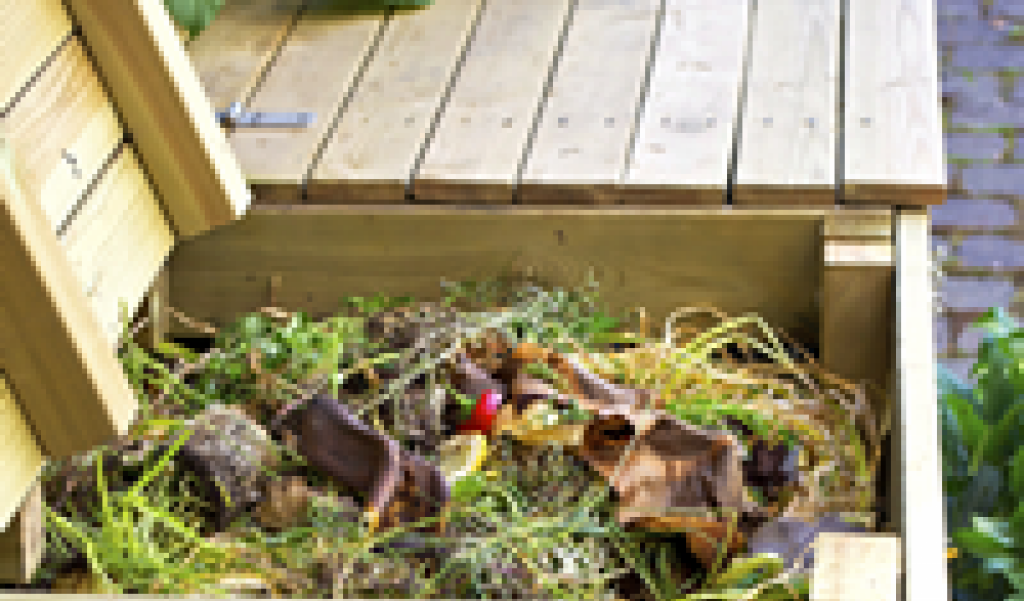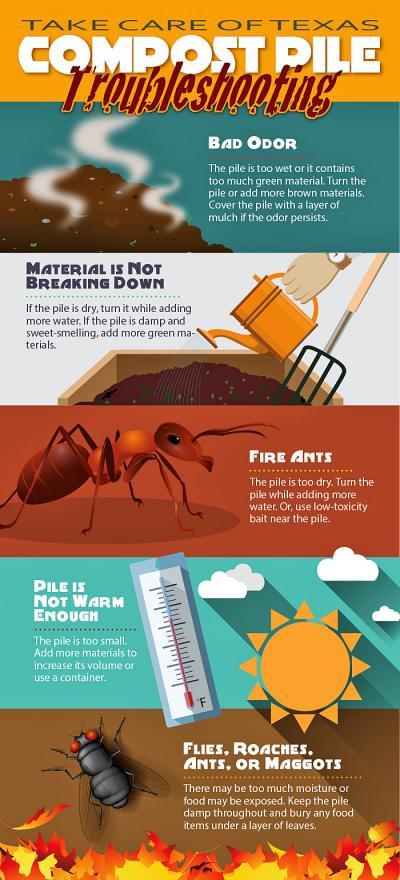Is something not quite right with your compost pile?

Perhaps the materials are not breaking down or the pile is emitting a foul odor. Issues of this nature can be attributed to something as simple as the pile's moisture level or the mixture of compost materials. Whether you are a beginner or have been composting for years, these are issues that can occur from time to time. Luckily, they are easily resolved! Check out these simple fixes that will help you get your compost pile working properly.

Pile is Wet and Has a Bad Odor
If your compost pile is wet and producing a foul odor that smells like rancid butter, vinegar, or rotten eggs, the compost is either too wet or it contains too much green material. This can be remedied by turning the pile, to give the compost more air, and adding more brown materials. Examples of good brown materials include wood shavings, wood chips, or dry leaves. If the pile is extremely wet, provide drainage for the water. Cover the pile with a layer of mulch if the odor continues to persist for more than one day.
Material is Not Breaking Down
Is the pile dry? If so, this means there is not enough water. Resolve this issue by turning the pile and adding water. Continue adding water until the entire pile is moist throughout.
Is the pile damp and sweet-smelling? There is a lack of nitrogen in your pile. Mix in a nitrogen source like fresh grass clippings, fresh manure, or ammonium sulfate.
Pile is Not Warm Enough or is Only Warm in the Center
A compost pile should heat up to over 130 degrees Fahrenheit. If your pile is not reaching this temperature, or if it is only warming up in the center, this means that the pile is too small. Add more materials to the pile to increase its volume. You may also consider using a container for the compost.
Insects and Larvae in the Pile
If there are pests such as flies, roaches, ants, or maggots in the compost, the pile may have too much moisture or food materials may be exposed. Eliminate these pests by ensuring that your pile always stays damp throughout, but is not soaking wet. The pile should have the dampness of a wrung-out sponge. Inspect the top of your pile. If food items are present, bury them under a layer of leaves. Any other insect in your pile is likely a harmless compositor.
Pile has Fire Ants
Fire ants indicate that the pile is dry and does not contain enough water. Carefully turn the pile while adding more water. Another method for getting rid of fire ants is to use a low-toxicity bait near, but not in, the pile.